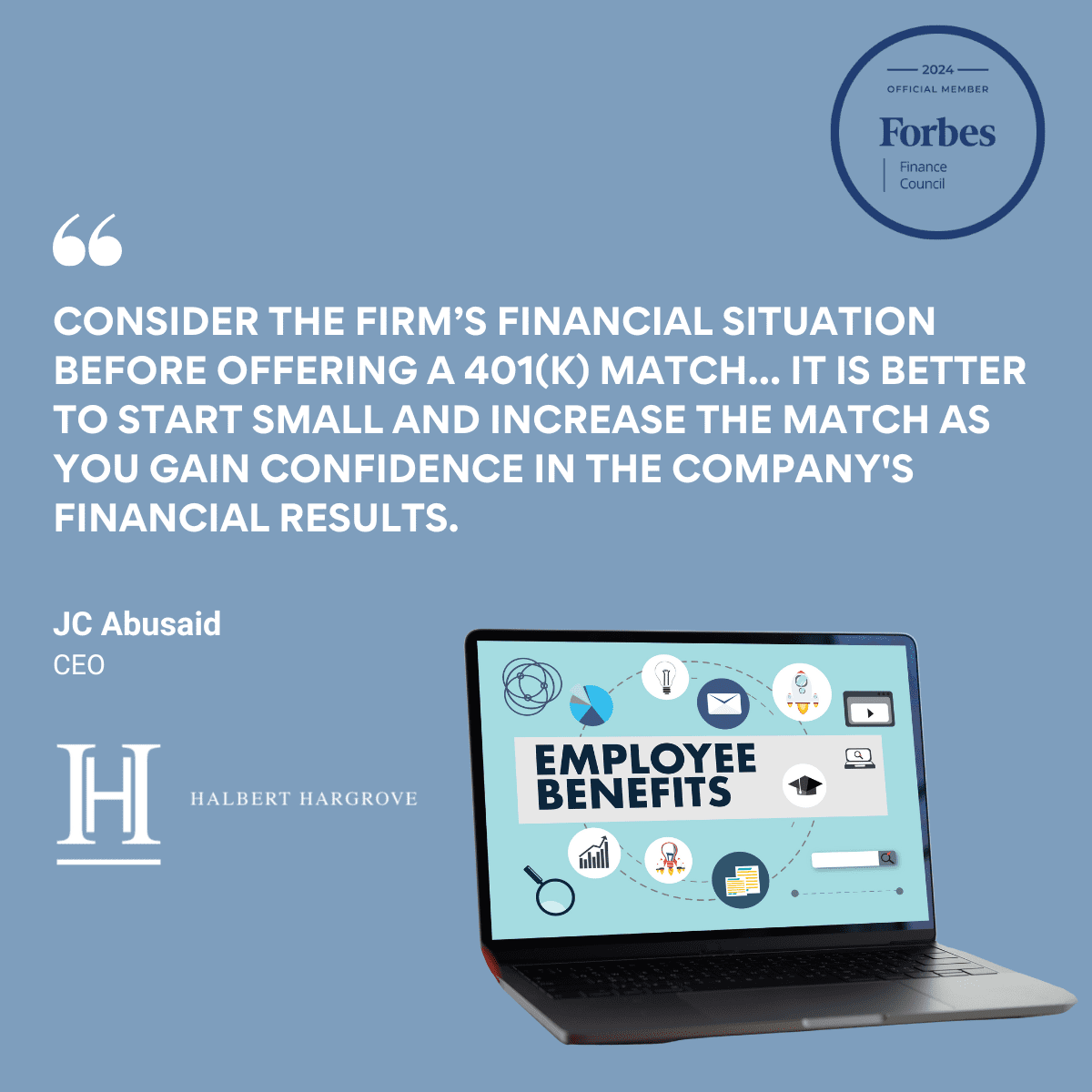By JC Abusaid, CEO/President as Featured in Forbes
Offering a matching 401(k) retirement benefit can be a powerful tool for attracting and retaining top talent. However, company leaders must carefully weigh several factors before implementing this benefit.
The company’s financial health, the potential impact on employee morale and the administrative costs of managing the plan can all impact the overall effectiveness and practicality of retirement savings matches.
Additionally, companies must understand the competitive landscape and align the benefits with their overall compensation strategy.
Below, Forbes Finance Council members share key factors to consider before introducing a matching 401(k) benefit for your employees.
1. Net Benefit To Organizational Culture
Leaders should consider the net benefit to organizational culture, as well as the talent they are trying to recruit and retain before offering a matching 401(k) retirement plan. In my experience, offering a 401(k) retirement benefit match for employees—while not a complete dealbreaker—is something that is particularly attractive to experienced candidates and enhances organizational culture.
– Robert Reeder, GlassView
2. Reasoning Behind Adding The Benefit
Ask yourself why you’re doing this. Is it to assist employees in achieving their retirement goals? Is it to attract new employees?
Is it to retain current employees? The match does not have to be the same across the board. Do you want a discretionary match for certain employees?
These are the questions your TPA should ask you. You will not get this at the do-it-yourself websites.
– Ronald Stair, Creative Plan Designs, Ltd.
3. Financial Stability
Consider the firm’s financial situation before offering a 401(k) match. Ensure your company can afford it first. It is better to start small and increase the match as you gain confidence in the company’s financial results. It would be terrible to overshoot and reduce or eliminate the match if the company can’t afford it. – John Abusaid, Halbert Hargrove.


